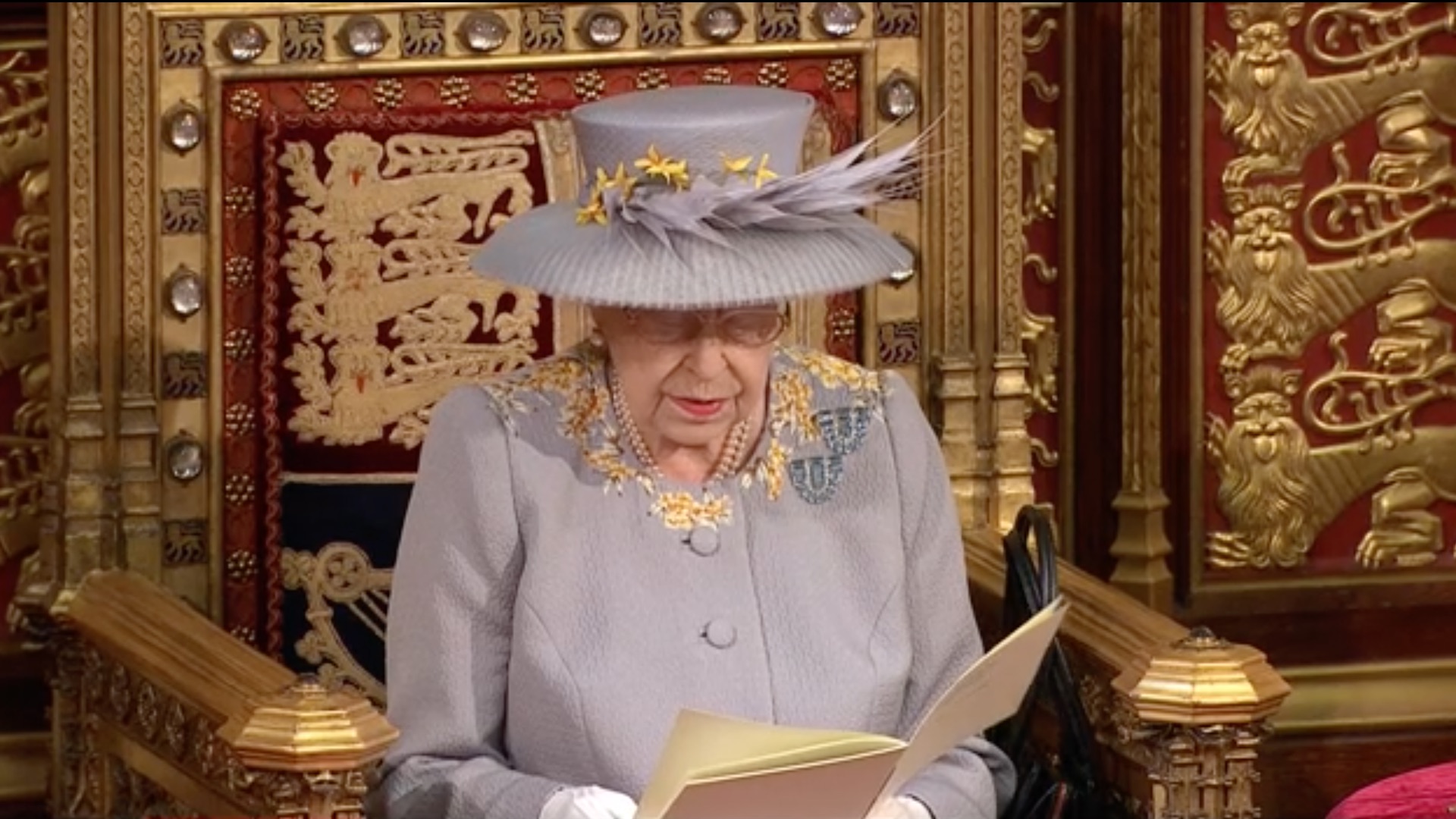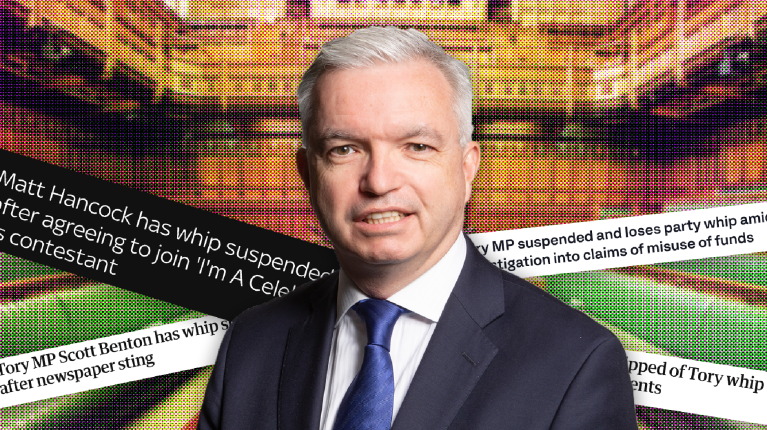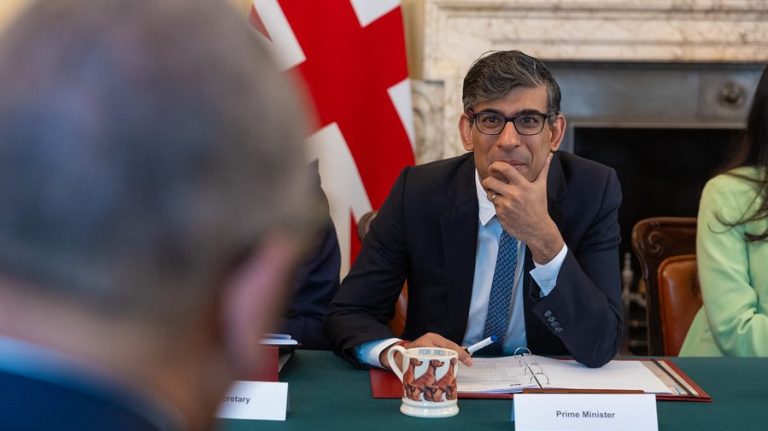However justice charity Nacro warned the government’s focus on level three qualifications and above risks leaving behind the UK’s “hardest to reach” young people.
Social care
Boris Johnson is reportedly keen to emphasise its commitment so adult social care reforms, and to changing how it is funded, though it has not pledged a specific bill to reform how it gives money to boost social care.
The Queen’s speech did not set out the detailed plan to boost social care nor a “NHS rescue plan” as called for by Labour leader Keir Starmer. The monarch said simply: “Proposals on social care reform will be brought forward.”
Policing bill
The controversial Police, Crime, Sentencing and Courts Bill – which sparked a series of Kill the Bill protests and is currently at the committee stage – is confirmed to continue its way through Parliament, potentially giving police and the Home Office powers to shut down protests at will. It is expected back in the Commons at the end of June.
Voter ID
The government will double down on its pledge to require photo ID from people to prove who they are if they want to vote in elections, despite warnings from campaigners that it will make it more difficult for disadvantaged people to vote.
Ministers want to introduce the requirement for general elections in Britain as well as local elections in England, and said it would tackle electoral fraud, though critics warned it would be “an affront to democracy”.
Judicial Review Bill
A Judicial Review Bill will make it harder for lawyers to take the government to court over its policies. Just last week two disabled people and a team of lawyers won the right to challenge the “discriminatory” way ministers had treated people on so-called legacy benefits during the pandemic.
Environment Bill
The long-delayed Environment Bill is still on the government’s agenda, though campaigners previously said ministers are taking too long to pass the legislation.
It will set binding targets to cut waste and protect nature – mostly across England and Wales – as well as creating more green jobs and regulating vehicle use.
Conversion therapy
The government has committed to making so-called gay conversion therapy illegal in England and Wales after pressure from MPs and equality campaigners. Ministers may look to ensure religious freedom is protected as well as those providing support, such as teachers and therapists, according to the BBC, sparking concerns among activists that there could be loopholes in the legislation.
But ministers will reportedly launch a consultation before bringing forward legislation which will put LGBTQ+ people at risk for longer, according to Nancy Kelley, Stonewall chief executive.
“We don’t need a consultation to know that all practices that seek to convert, suppress, cure or change us are dangerous, abusive and must be banned,” she warned.
Housing
The Government’s new Planning Bill will set out to reform England’s planning system for homes, helping local authorities build more houses and speeding up the planning application process.
Opposition MPs previously warned the new legislation could have a negative impact on communities and fail to tackle the housing crisis.
Asylum system
Priti Patel’s Borders Bill will mean asylum seekers and refugees could have their claim for a place in the UK judged based on how they arrived in the UK, meaning those who arrive over the Channel by dinghy could be denied.
People will also me housed in “reception centres” more frequently,
Building and fire safety
The Building Safety Bill will regulate high-rise buildings and those under construction in a new way, coinciding with the Fire Safety Act introduced after the 2017 Grenfell Tower tragedy. New legislation will introduce “accountable persons” to make clear who is responsible for making sure buildings are safe.
Ministers will introduce a building safety regulator to ensure “the tragedies of the past are never repeated” as well as a new system of financing the removal of dangerous cladding from buildings, though people living in buildings under 18 metres could still have to foot the bill.
What was left out of the Queen’s speech?
Campaigners and social justice experts were looking out for legislation to cut inequality across the country. These are some of the things they wanted to hear, but didn’t, in the Queen’s speech.
Workers’ rights
Experts including the Joseph Rowntree Foundation called for an employment bill which would not just reverse the pandemic-driven jobs crisis, but strengthen the rights of people in work following a spate of strikes and fire-and-rehire scandals across multiple sectors.
The organisation wants the government to take action on precarious work, including zero-hours contracts, and “strike a better balance between flexibility and security for workers” while creating a “reliable route out of poverty”. But there was no mention of an employment bill – first proposed in 2019 – in the Queen’s speech.
Analysis by the Labour party showed there were nearly seven times as many jobs in high-tech industries in wealthier parts of the country than in others.
Renters’ Reform Bill
A Renters’ Reform Bill, promising to end section 21 “no fault” evictions was introduced two years ago but has made little headway since then.
Joseph Rowntree Foundation polling showed the evictions ban, set to end on May 31, has prevented up to 300,000 private tenants from being at risk of losing their homes.
The Queen made mention of changes to help renters but the government is not committing to passing the Renters’ Reform Bill right away. Instead it will launch a white paper this autumn exploring options to protect renters including allowing tenants to have one lifelong deposit which can move with them from home to home.
Ending poverty
Campaigners were looking out for a firm commitment to act on the UK’s poverty crisis which accelerated during the pandemic.
But – despite ministers’ vague promises of “levelling up” the UK – the Queen’s only mention of poverty was in reference to foreign aid, with the government pinning its efforts on making a difference globally when it hosts the G7 summit.
Keir Starmer called on the government to target disadvantaged areas of the UK, such as the North East of England, warning current funding would not be enough to cut the wealth gap between rich and poor local authorities.
Vagrancy Act
The UK government had vowed to consign the almost 200-year-old Vagrancy Act to history in recent months but there was no mention of any legislation to remove and replace it in the Queen’s speech.
After communities secretary Robert Jenrick said the act – which criminalises rough sleeping and begging – should be repealed in February, government minister Eddie Hughes confirmed the legislation would be removed “at a pace” in a Westminster Hall debate in April.
Speaking at that debate, Oxford West and Abingdon MP Layla Moran asked Hughes if the Queen’s speech would spell the end for the act.
In reaction to its omission from the speech, Moran said: “The Government is failing the homeless today. It’s a moral outrage that a Victorian-era law continues to punish those who desperately need help.
“We urge the Government to act and bring forward legislation in this session. If they fail to do that and push this back even further, it will deal a massive blow to our cross-party attempts to make this happen. Jenrick must publish his review, work with us and scrap the Act once and for all.”









